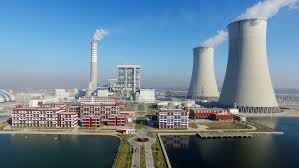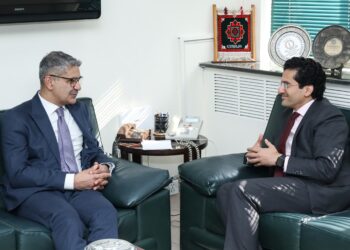ISLAMABAD: In a significant assertion of regulatory independence, the National Electric Power Regulatory Authority (NEPRA) has issued long-pending notifications for K-Electric’s (KE) multi-year supply, distribution, and transmission tariffs for the period 2023–24 to 2029–30—despite an unresolved review motion filed by the federal government.
The move comes as NEPRA cites no legal barrier preventing the implementation of its earlier determinations, underscoring a 2021 legal amendment that empowers the regulator to issue tariff notifications directly—formerly the prerogative of the federal government. The change was introduced under pressure from the International Monetary Fund (IMF) and the World Bank to depoliticize tariff setting and streamline power sector governance.
NEPRA is obligated under Rule 31 of the NEPRA Act to notify tariffs if the government fails to act within the stipulated time. Any subsequent changes to its determinations—if warranted by the pending review—will be reflected through revised notifications.
The notified average power supply tariff for KE now stands at Rs 39.97 per kilowatt-hour (kWh), with major cost components including Rs 31.96/kWh for power purchase (excluding transmission), Rs 2.86 for transmission, Rs 3.31 for distribution, and Rs 2.28 as supply margin. A prior year adjustment of minus Rs 0.44/kWh has also been factored in.
KE’s total revenue requirement for FY 2023–24 is estimated at Rs 606.9 billion. Of this, Rs 34.7 billion is allocated for supply margin and Rs 36.2 billion is recognized as recovery loss. However, financial challenges loom large. With actual recovery for FY 2023–24 at 91.5% and projected to fall to 90.5% in FY 2024–25, KE is staring at cumulative under-recoveries of nearly Rs 97 billion over the two fiscal years.
NEPRA acknowledged the strain, noting that KE’s allowed return on distribution operations—about Rs 21.6 billion—may be wiped out if no relief is granted for recovery shortfalls. “This situation could impair KE’s financial health and undermine power supply continuity, ultimately affecting consumers and the broader energy market,” the Authority warned.
The urgency of the matter was further highlighted by a recent high-level meeting chaired by Deputy Prime Minister Ishaq Dar to address KE’s ownership complications, following diplomatic correspondence from Pakistan’s Ambassador in Riyadh concerning Al-Jomaih Group’s involvement.
Additionally, NEPRA approved KE’s distribution tariff at Rs 3.31/kWh and Rs 2.684/kWh for an investment plan of Rs 43.4 billion during the Multi-Year Tariff period.
A key highlight of the approval is NEPRA’s acceptance of KE’s proposal to recover recovery losses – factoring in a realistic trajectory from 92.76% (FY 2024) to 95.48% (FY 2030) and to include a retail margin of 1.5% of adjusted revenue. The authority has also allowed the actualization of sent-out and billed units, which will be adjusted annually to reflect economic and operational realities, similar to other DISCOs. This change aims to align KE’s supply tariff with industry-wide revenue cap models.
Distribution charges amount to Rs 61,385 million based on base tariff for distribution of Rs 3.84/kWh as requested in KE’s distribution petition for the FY 2024- 2030. NEPRA has allowed PKR 3.31/kWh. The transmission charges requested by KE at the rate of PKR 2.99/kWh, have been linked to the Monthly Demand Index (MDI) as notified by NEPRA.
The regulator’s firm stance signals a more autonomous and rules-based tariff regime going forward—potentially reshaping the contours of Pakistan’s power sector governance.
Ends















